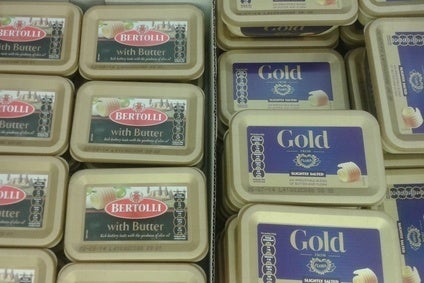
Unilever hopes to rejuvenate its lacklustre food sales in developed markets by using innovation to move its brands into the growth spots of its mature categories.
The Anglo-Dutch FMCG giant saw food sales weigh on the group’s first-half result. Underlying group sales rose 3.7% in the six months to 30 June, while underlying food sales were down 0.5% in the period.

Discover B2B Marketing That Performs
Combine business intelligence and editorial excellence to reach engaged professionals across 36 leading media platforms.
Commenting on the result of the group’s food business, Unilever CEO Paul Polman emphasised that its performance picked up in the second quarter, when underlying sales rose 0.7% compared to a fall of 1.7% in the first quarter.
Polman said that the unit saw underlying sales growth in emerging markets. Through its portfolio adjustment programme, Unilever is increasing the balance of food sales generated in developing countries.
“The disposals we have made are increasing the proportion of food sales in emerging markets. Here we grew at 5% in the first half and closer to 7% in the second quarter, well ahead of our markets. But 60% of our food sales are still in developed markets,” the chief executive noted.
While top line trends lagged in developed markets, Polman stressed that sales trends in North American and Europe were “improving”.

US Tariffs are shifting - will you react or anticipate?
Don’t let policy changes catch you off guard. Stay proactive with real-time data and expert analysis.
By GlobalDataThe company hopes to speed this process up by repositioning its brands towards the growing segments in its categories. To this end, Unilever is rolling out “differentiated innovations” to “build a presence in categories that are better positioned to take advantage of emerging consumer trends”, Polman said.
“Our challenge is to reposition our portfolio towards the growing segments. In savoury for example we have been extending the [Knorr] baking bag ranges that are sold in over 40 countries to include microwave bags for vegetables and we have taken the jelly technology from our stock pots into a new range of seasonings.”
Warm weather in Europe hit the group’s soup sales in the period. However, the company is pushing ahead with efforts to access faster-growth areas of the market. “The growing segment is wet soup, where we have been historically been under represented but are now more active,” Polman noted.
In the problematic spreads business, Unilever has also been using innovation to tap into fields of growing consumer interest.
While sales in the category remained under pressure, Polman struck an upbeat note: “There are undoubtedly some signs that we are on the right track. Our volume trend is improving and we are now gaining share from other margarines. The next step is to stem the market decline and stabilise our sales. We have entered the growing segment of spreads made from a blend of veg oil and butter.”
During the period, Unilever launched a number of new blended products, including Bertolli with butter and blended Gold. In total, Unilever has rolled out blended spreads in ten European countries, the company revealed.
Adjusting the group’s mix and tapping into higher growth areas should help Unilever lift the revenue trajectory of food, Polman predicted. “The foods category continues to be a strong contributor of profit and cash to Unilever. Margins are very good, improving further in the first half of the year, and our shares are strong. The challenge is to get the consistent growth and given the profile of our business this is likely to be lower growth than other categories. But it should improve over time as we change our footprint.”
However, there is a degree of uncertainty around how quickly these portfolio adjustments will feed through to the top line and whether they will be enough to offset the global slowdown impacting the group in the first half.
Unilever has been hit by a considerable slowdown across all its markets and categories, with macroeconomic issues hitting the firm’s outlook. Globally, management said growth across its categories totalled just 2.5% in the half.
This weak growth outlook promoted Kepler Cheuvreux analyst Richard Withagen to downgrade the group from “buy” to “hold” in the wake of the results release.
“Underlying sales growth fell short of expectations in H1, as Asian markets continued to slow and developed market growth remained weak,” he wrote in a note to investors. “Uncertainty over future growth has increased.”
As Unilever moves into the back half of the year, attention will focus on the performance of its new product pipeline and whether the group is indeed able to use innovation to change gears and step up growth in food – and across its entire portfolio.





